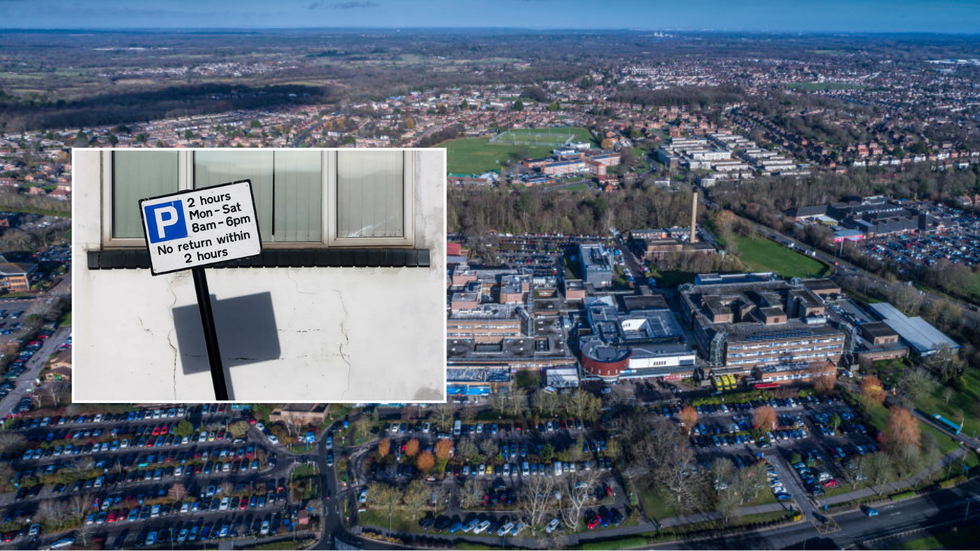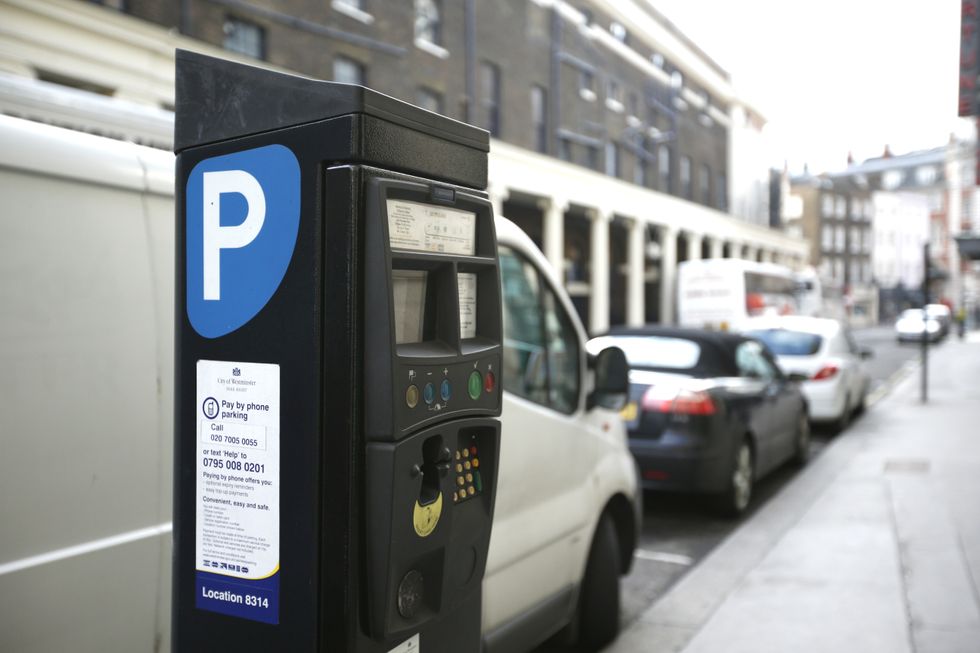Hemma Visavadia
Guest Reporter
Electric car owners have been warned they will see parking permit charges more than double while fees for high-emission vehicles are set to decrease, following a controversial decision by Dover District Council.
The hike comes after Dover District Council voted to implement a flat rate of £105 for on-street parking permits across most zones in the district from January 13.
The change means owners of electric cars like the Nissan Leaf will face a 162 per cent increase from their current £40 annual charge.
Meanwhile, drivers of vehicles producing higher CO2 emissions will benefit from a £15 reduction in their fees.
Do you have a story you'd like to share? Get in touch by emailing [email protected]

The new flat rate will standardise charges across all vehicle types, eliminating the previous emissions-based banding system.
Under the current system, vehicles are charged based on their CO2 emissions, ranging from £40 for zero-emission cars to £120 for vehicles producing over 130g/km of CO2.
Second permit holders will also see changes, with a new flat rate of £130 replacing the current tiered system that ranges from £65 to £145.
Council officials stated that the existing banding system has failed to encourage the uptake of eco-friendly vehicles in the district.
The changes will affect approximately 2,061 permit holders across Dover's residential parking zones.
But Green Party councillor Mike Eddy, who serves on both Deal and Walmer Town Councils, condemned the decision as "silly."
"People with the least polluting cars should be given some kind of benefit," he said. "I think this is discouraging people from moving from petrol and diesel to electric vehicles."
Fellow Green Party member Councillor Nick Shread of Dover Town Council called the move "rather strange" and criticised its "lack of foresight."
Shread noted that while the decision aligns with recent Government changes removing tax exemptions for electric vehicles, his party opposes the policies.
According to council documents, the emissions-based charging trial launched in 2021 has shown minimal impact on vehicle choices.
Only 20 new permits were issued for zero-emission vehicles during the trial period, with just 14 additional permits for hybrid vehicles producing 1-50g/km of CO2.
"Following the trial period, it is now considered that differential charging for resident permit holders alone is insufficient to influence the public's decision-making on vehicle purchasing," the council report detailed.
LATEST DEVELOPMENTS:

Officials note that extending emissions-based charging to public pay & display areas could be more effective, but current parking machines cannot support this system.
The changes will result in higher charges for 185 residents, while 896 will pay less and 980 will see inflation-adjusted fees remain stable.
One local resident told KentOnline that some people won't have the money to buy a lower emissions car, while another person described the parking permit system as "disgusting," adding that people are already paying car tax.
The changes have sparked strong reactions on social media, with one resident calling it "another tax on the people who can probably least afford it."
Find Out More...
The hike comes after Dover District Council voted to implement a flat rate of £105 for on-street parking permits across most zones in the district from January 13.
The change means owners of electric cars like the Nissan Leaf will face a 162 per cent increase from their current £40 annual charge.
Meanwhile, drivers of vehicles producing higher CO2 emissions will benefit from a £15 reduction in their fees.
Do you have a story you'd like to share? Get in touch by emailing [email protected]

The new flat rate will standardise charges across all vehicle types, eliminating the previous emissions-based banding system.
Under the current system, vehicles are charged based on their CO2 emissions, ranging from £40 for zero-emission cars to £120 for vehicles producing over 130g/km of CO2.
Second permit holders will also see changes, with a new flat rate of £130 replacing the current tiered system that ranges from £65 to £145.
Council officials stated that the existing banding system has failed to encourage the uptake of eco-friendly vehicles in the district.
The changes will affect approximately 2,061 permit holders across Dover's residential parking zones.
But Green Party councillor Mike Eddy, who serves on both Deal and Walmer Town Councils, condemned the decision as "silly."
"People with the least polluting cars should be given some kind of benefit," he said. "I think this is discouraging people from moving from petrol and diesel to electric vehicles."
Fellow Green Party member Councillor Nick Shread of Dover Town Council called the move "rather strange" and criticised its "lack of foresight."
Shread noted that while the decision aligns with recent Government changes removing tax exemptions for electric vehicles, his party opposes the policies.
According to council documents, the emissions-based charging trial launched in 2021 has shown minimal impact on vehicle choices.
Only 20 new permits were issued for zero-emission vehicles during the trial period, with just 14 additional permits for hybrid vehicles producing 1-50g/km of CO2.
"Following the trial period, it is now considered that differential charging for resident permit holders alone is insufficient to influence the public's decision-making on vehicle purchasing," the council report detailed.
LATEST DEVELOPMENTS:
- Britons face £300 penalties for illegal e-scooter use as police crackdown on rulebreakers
- Traffic chaos: Snow and severe weather causes heavy delays and closures in North England
- Drivers warned of tougher traffic rules going live this month after council gains new powers - 'Receive a fine'

Officials note that extending emissions-based charging to public pay & display areas could be more effective, but current parking machines cannot support this system.
The changes will result in higher charges for 185 residents, while 896 will pay less and 980 will see inflation-adjusted fees remain stable.
One local resident told KentOnline that some people won't have the money to buy a lower emissions car, while another person described the parking permit system as "disgusting," adding that people are already paying car tax.
The changes have sparked strong reactions on social media, with one resident calling it "another tax on the people who can probably least afford it."
Find Out More...
